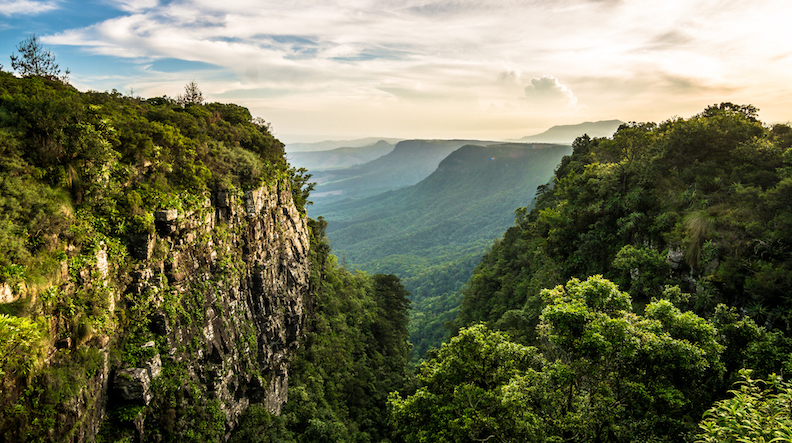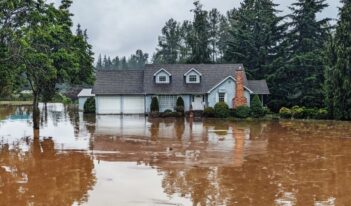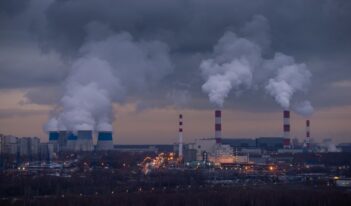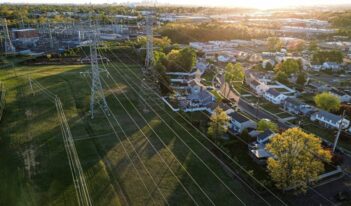
Poetry can help combat despair and act as a force for optimism and change.
I became a lawyer to pursue justice for the poor and for those deemed voiceless. Over the years, as I watched the environmental crisis intensify, while welcoming my children and then grandchildren into the world, I realized that achieving justice, as well as racial and economic equality, requires a livable earth.
I find it hard to understand why we do not do more to address the accelerating climate change humans have caused that threatens the health and well-being of people in the United States and all over the world. Or why we have let poor and marginalized communities bear the brunt of environmental devastation. Or, finally, why we continue to endanger magnificent animals with whom we share our planet. All major religions view the earth and its creatures as sacred, our “common home,” and we are all responsible for its care.
With a new anthology I edited—Here: Poems for the Planet—I hope to inspire readers to tackle climate change by fostering optimism about the future. Through collective action—and animated by poetry—society can address climate change’s challenges and make planet Earth a healthier, more hospitable, and more equitable place.
Society is facing multiple dire threats from climate change, and there are many losses to mourn. Communities are already experiencing the most immediate effects: accelerating sea-level rise, longer and more harmful wildfire seasons, more common and serious heat waves, more rainfall and flooding, and numerous adverse impacts on human health.
These devastating consequences will worsen as temperatures continue to rise, unless society takes decisive and unprecedented action. There is scientific consensus that humans must limit post-industrial temperature increases to 1.5 degrees Celsius over pre-industrial levels or face catastrophic risks. Limiting this increase through an ambitious national plan would allow the United States to do its part to forestall the most severe outcomes and help eradicate poverty.
This will require an extraordinary effort, but scientists say it can be done. The United States can help accomplish this goal by replacing fossil fuels—which power buildings and transportation—with renewable energy and by reducing energy use.
Rather than despair, society must act. As a poverty lawyer, I fought for my clients to keep their homes in the face of long odds. Now, as a lawyer and poet, I believe poetry can help move us beyond passive mourning into hope and courage, as it did for me after the early deaths of my beloved parents and a life-threatening illness of my own. Despair cannot help us achieve our goals, but hope can. Hope can give us courage and energy, and poetry can give us hope.
Percy Bysshe Shelley described poets as “the unacknowledged legislators of the world,” as they ignite our sense of what is right, illuminating our visceral connection to the world around us. Or, as poet and civil rights activist Audre Lorde said, poetry “is a vital necessity of our existence. It forms the quality of the light within which we predicate our hopes and dreams toward survival and change, first made into language, then into idea, then into more tangible action.”
In editing Here: Poems for the Planet, which includes a foreword from His Holiness the Dalai Lama and a guide to activism from the Union of Concerned Scientists, I hope to galvanize readers to address the environmental crisis with enthusiasm and without fear, which can lead to indifference, cynicism, and inaction. I want to help encourage a sense of urgency and hope. My goal is to reach those already engaged—and those sitting on the sidelines—in a new way. Consistent with this goal, Copper Canyon Press, the book’s publisher, has raised funds to give a copy to every member of Congress.
The book contains more than 125 poems written by a diverse group of living poets from around the world, some as young as six years old. I hope Here will, as poet Cecil Rajendra imagines, “crack the carapace of indifference/ prise open torpid eyelids/ thick-coated with silver,” and help us walk our planet as if we are “new to the world,” as Wendy Videlock implores. Or, to quote Jane Hirshfield, the “world asks of us/ only the strength we have and we give it./ Then it asks more, and we give it.”
I want to leave readers stirred, and ready to act, regardless of how often they have turned to poetry in the past, and regardless of political affiliation.
In the guide to activism which follows the poems, the Union of Concerned Scientists details crucial steps that individuals can take on a personal level, in their communities, and in communication with institutional powers to forestall the most serious effects of climate change.
In our effort, we are far from alone. As scientists continue to study the impacts of climate change, and with the limited amount of time we have left to prevent its most dire consequences, people around the world are studying and implementing the most effective solutions, from individual and communal to corporate and governmental. As of this year, 185 countries and the European Union have ratified the Paris Agreement on climate. And although the United States announced its intention to withdraw from the agreement, many of our cities and states have pledged to carry its commitments forward.
There are people, governments, and organizations on every continent addressing these issues with passion and urgency. In the United States, a new generation of lawmakers and some climate stalwarts have re-inspired our will for legislation to fight climate change. Most recently, lawmakers—led by U.S. Representative Alexandria Ocasio-Cortez (D-N.Y.) and U.S. Senator Ed Markey (D-Mass.)—announced plans for a Green New Deal, which, although lacking the effect of law, has shown the power of a science-based response to climate change in a fresh and striking way, with young people at the forefront.
The world we are hoping and working for—one that relies on clean, renewable energy, that feeds people and nurtures the environment, and that protects vulnerable populations, including those most impacted by climate change—seems more possible than it did even just a few months ago.
As His Holiness the Dalai Lama wrote in his foreword to Here, if “we have the capacity to destroy the Earth, so too, we have the capacity to protect it.”
With the same courage and optimism the United States showed when it set out to land on the moon, this generation can take its own “moonshot” by aiming to limit the post-industrial increase in global temperatures to 1.5 degrees Celsius, protect the vulnerable, and make our planet livable for the generations to come.
As Lee Herrick writes,
I feel like the saints are marching.
They are singing a slow, deep and beautiful song,
Waiting for us to join in.
Elizabeth J. Coleman recently discussed her work as a poet and advocate in an interview for Penn Law’s Case in Point podcast.




